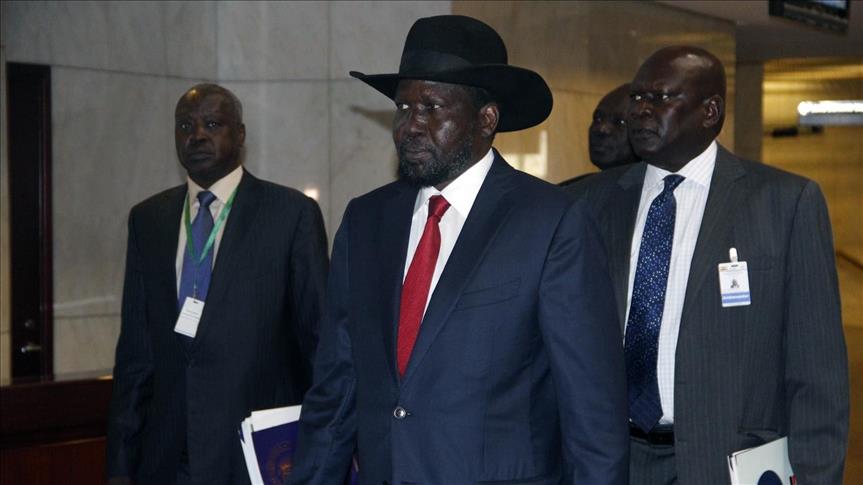 President of South Sudan Salva Kiir
President of South Sudan Salva Kiir
Cuba
By Parach Mach
JUBA, South Sudan
South Sudan’s President Salva Kiir Wednesday night dismissed his Foreign Minister Barnaba Marial, who has served in the role throughout the current civil war, in a move seen as an attempt to firm his grip on power amid increasing pressure from within the country.
No reasons were given, but the decision came after Marial allegedly described the people of Abyei, a disputed territory between Sudan and South Sudan, as Sudanese.
Marial signed a document sent to the United Nations High Commissioner for Human Rights in which Luka Biong Deng, a former South Sudanese minister for the presidency, was referred to as a Sudanese national.
Deng, who hails from Abyei, was expelled from the University of Juba as a lecturer and fled the country in October last year after he was threatened by security agents over a symposium he organized on the controversial creation of 28 new states.
Marial’s controversial statement left a mixed reaction in the country. A group of former political detainees who were accused of plotting a coup in 2013 that sparked two years of civil war in the country had already called for him to tender his resignation.
The country’s main opposition political party, Democratic Change, branded the statement “irresponsible”, also calling on him to step down.
“The foreign affairs minister deserves sacking because he cannot manage foreign policies with such statements,” Democratic Change spokesperson Mahjoub Biel Turuk told Anadolu Agency.
Marial tried to distance himself from any wrongdoing, but declined to apologize publicly. He told a press conference in Juba on Monday that Abyei, the land of nine Ngok Dinka chiefdoms, is South Sudanese territory. He said the Dinka people are exclusively South Sudanese.
The people of Abyei are citizens of South Sudan entitled to all privileges in the country, said Foreign Ministry spokesperson Mawien Makol Ariik.
“When it comes to the constitution, Abyei people are citizens are South Sudan. The protocol on Abyei concludes they are part and parcel of South Sudan,” Ariik told Anadolu Agency.
Deng Alor, a key member of the ruling SPLM’s former detainees, and also a native of Abyei, had earlier been named as a possible candidate for the position of foreign minister in line with a power-sharing arrangement made this January.
The issue of Abyei is among the unresolved outstanding issues in the 2005 compressive peace agreement (CPA) reached prior to South Sudan’s independence in 2011.
The agreement includes self-determination in the areas of Blue Nile and Southern Kordofan in which rebels of the splinter Sudan People’s Liberation Movement-North (SPLM-NORTH) opposed to Khartoum are involved in fighting.
Abyei’s rich oil reserves make the region economically desirable to both Sudan and South Sudan.
The Abyei area stands between Sudan and South Sudan and is a historically disputed territory. The Abyei Protocol (part of the CPA which ended Sudan’s second civil war in 2005) stated that at the end of a six-year interim period, Abyei residents would vote in a referendum to either maintain their special administrative status in Sudan or become part of South Sudan. The protocol included the creation and empowerment of the Abyei Boundaries Commission to "define and demarcate the area" between the Ngok Dinka and Misseriya ethnic groups’ traditional boundaries
It never happened, but in 2013, Abyei residents in a form of defiance to Sudan held a referendum, choosing to be part of South Sudan, but the results were not officially recognized.








